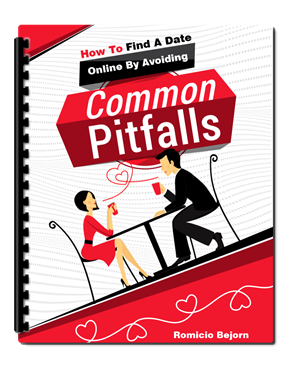Friendships are meant to bring joy, support, and balance to our lives. A true friend encourages us, respects our boundaries, and celebrates our wins as much as they comfort us during struggles.
But what happens when a friendship no longer feels uplifting?
What if spending time with someone leaves you drained, anxious, or undervalued?
That’s often a sign the relationship is shifting from healthy to toxic.
Toxic friendships don’t always appear obvious at first. They can sneak in subtly, leaving you second-guessing your feelings or questioning your self-worth.
The good news is: identifying the signs early can help you decide whether to set boundaries, have an honest conversation, or walk away entirely.
Today, we’ll break down 8 common signs a friendship is turning toxic and give you practical strategies on what to do about it.
This is your roadmap to spotting unhealthy dynamics, protecting your emotional well-being, and reclaiming peace in your personal life.
1)) They Constantly Put You Down
A healthy friend lifts you up, even when they need to be honest with you. But when every conversation is filled with sarcasm, criticism, or belittling comments, that’s a red flag.
If you leave hangouts feeling smaller instead of stronger, chances are you’re dealing with negativity disguised as “jokes” or “honesty.”
Sometimes toxic friends hide behind humor, but the intention is still to chip away at your confidence. Over time, this type of behavior can erode your self-esteem. True friends should challenge you constructively, not humiliate you.
What to Do About It:
- Set a boundary: Calmly tell your friend you don’t appreciate certain jokes or comments.
- Track patterns: Keep a mental checklist of how often they put you down versus how often they support you.
- Ask yourself: Would you accept this treatment from anyone else? If the answer is no, then why tolerate it from a friend?
Best Practice: Don’t brush off consistent put-downs. One off-hand comment may not mean much, but constant negativity is a serious warning sign.
2)) The Friendship Feels One-Sided
Friendship is about give and take. If you’re always the one listening, planning, apologizing, or helping while your friend rarely reciprocates, it’s an unbalanced relationship.
One-sided friendships are draining because you’re essentially carrying the weight of the connection on your own.
You may notice you’re always the one texting first, remembering their important dates, or showing up during crises while they disappear when you need support.
This imbalance makes you feel undervalued and unimportant, which is the opposite of what a healthy friendship should bring.
What to Do About It:
- Do a quick audit: Make a simple worksheet with two columns—what you give vs. what they give. If one side is consistently empty, that’s a sign.
- Communicate clearly: Say something like, “I feel like I’m putting in more effort here, and it hurts.”
- Rebalance energy: If they don’t change, start pulling back your energy and see if they notice or care.
Warning: If a friend only shows up when they need something from you, they’re not valuing the friendship—they’re using it.
3)) They Drain Your Energy
Some people are simply exhausting to be around. Instead of leaving a hangout feeling refreshed, you feel mentally or emotionally drained.
These are the friends who constantly complain, demand attention, or pull you into their drama without regard for your feelings.
It’s okay to support friends during rough times, but if the relationship becomes a constant cycle of negativity with no balance, it’s harmful.
Emotional exhaustion is one of the clearest indicators a friendship may be turning toxic.
What to Do About It:
- Check your energy levels: After spending time with them, ask yourself, “Do I feel better or worse?”
- Set limits: Practice saying no when they try to dump their problems on you at inconvenient times.
- Redirect conversations: Try shifting discussions to lighter or more positive topics. If they refuse, that’s telling.
Tip: Protecting your mental health isn’t selfish—it’s necessary.
4)) They Don’t Respect Boundaries
Healthy friendships are built on mutual respect. If you’ve asked for space, said no to something, or explained a personal limit and your friend ignores it, that’s a boundary issue.
Friends who continually cross lines—whether it’s invading your privacy, pressuring you to do things, or disregarding your feelings—are not respecting you.
Boundaries are not just about saying no; they’re about defining how you want to be treated.
A toxic friend often sees boundaries as challenges to push against instead of guidelines to honor.
What to Do About It:
- Be direct: Clearly state your boundary in a respectful but firm tone.
- Reinforce consequences: For example, “If you keep calling me late at night, I’ll stop answering your calls.”
- Stand firm: If they truly respect you, they’ll adjust. If they don’t, that says everything.
Checklist:
- Do they pressure you after you’ve said no?
- Do they dismiss your feelings when you express discomfort?
- Do they guilt-trip you for having limits?
If you checked yes to any of these, your friend isn’t respecting your boundaries.
5)) Jealousy and Competition Take Over
Healthy friendships celebrate each other’s wins. Toxic ones, on the other hand, are filled with jealousy, envy, or competition.
If your friend downplays your achievements, gets resentful when things go well for you, or constantly tries to one-up you, that’s a sign of insecurity turning into toxicity.
Instead of sharing joy, these friends make your success about them. Over time, this creates tension and prevents you from feeling safe to share your wins.
What to Do About It:
- Observe reactions: Pay attention to how they respond to your good news. Genuine friends cheer you on, not compete with you.
- Address it: Say something like, “I’d love to celebrate my wins with you, but it feels like you’re upset when I share.”
- Limit bragging rights: Don’t shrink your success to make them feel better—that’s their responsibility to manage, not yours.
Best Practice: Surround yourself with friends who root for you. If your circle feels more like a competition, it’s time to reconsider.
6)) They Gossip About You
If you find out a friend has been sharing your secrets or talking badly about you behind your back, that’s a betrayal of trust. Gossip not only damages your reputation but also creates unnecessary drama.
True friends protect your name when you’re not around. Toxic friends use your private information as entertainment or as a way to feel superior.
What to Do About It:
- Gather the facts: Make sure it’s not a misunderstanding before confronting them.
- Call it out: Tell them directly, “I heard you shared something I trusted you with. That hurts.”
- Limit what you share: Until trust is rebuilt, keep sensitive information private.
Warning: A friend who consistently gossips about you is unlikely to stop. That’s a sign to step back.
7)) They Make Everything About Them
Do you notice your friend dominates every conversation? Whether you’re sharing good news or venting about a tough day, somehow the spotlight always shifts back to them.
Over time, this lack of reciprocity makes you feel unheard and unimportant.
Friendships thrive on balance. Both people should feel seen and valued. A toxic friend, however, thrives on being the center of attention, leaving little room for your needs.
What to Do About It:
- Interrupt gently: Redirect the conversation back to your topic if they derail it.
- Express your needs: Say, “I really need to share something without it shifting to another subject.”
- Test their response: If they can’t handle giving you space, the friendship may not be worth keeping.
Idea: Try a “two-minute rule.” Give each person uninterrupted time to talk before responding. This helps balance conversations.
8)) You Feel Worse After Seeing Them
At the end of the day, the biggest sign of a toxic friendship is simple: you consistently feel worse after being with them.
Maybe it’s guilt, frustration, or self-doubt, but the emotional aftertaste is always negative. Friendships should leave you feeling supported, not depleted.
Trust your gut. If your body feels tense or your mood shifts every time you interact with this person, it’s your intuition signaling a problem.
What to Do About It:
- Check patterns: Keep a journal of how you feel before and after interactions.
- Limit exposure: Spend less time with them and notice if your overall mood improves.
- Consider ending it: Sometimes the healthiest choice is to step away.
Hack: Pay attention to how you feel after hanging out with different people. Your energy doesn’t lie.
Conclusion
Friendships play a huge role in shaping our mental and emotional well-being.
While no relationship is perfect, there’s a clear difference between occasional conflict and consistent toxicity.
The key is learning to spot the red flags, trust your instincts, and take action before the damage goes too deep.
If you notice these signs—constant put-downs, one-sided effort, emotional drain, boundary crossing, jealousy, gossip, self-centeredness, or simply feeling worse afterward—it’s time to reevaluate.
You deserve relationships that nurture you, not ones that break you down.
Letting go of a toxic friend doesn’t mean you’re cold-hearted. It means you value your peace, respect yourself, and make space for healthier connections.
By setting boundaries and surrounding yourself with supportive people, you create a circle that truly uplifts you.
Download Our Free E-book!







